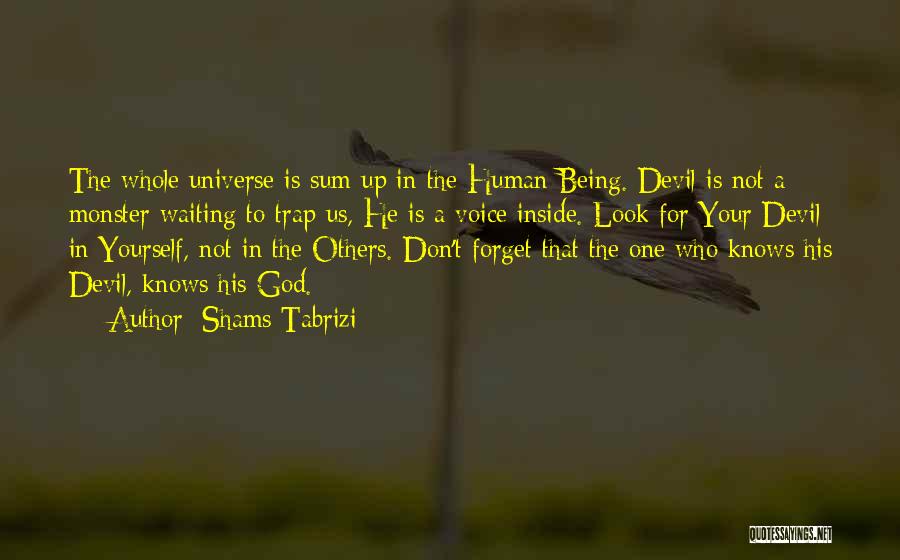
Whatever you speak, good or evil, will somehow come back to you. One man’s joy will make everyone smile.Ģ7.

And do not gossip behind anyone’s back – not even a seemingly innocent remark! The words that come out of our mouths do not vanish but are perpetually stored in infinite space and they will come back to us in due time. Whether we are aware of it or not, we are all in a silent conversation. Everything and everyone is interconnected through an invisible web of stories.

And the fourth level is so deep it cannot be put into words and is therefore bound to remain indescribable.Ģ6. Third, there is the innermost of the internal. The first level is the outer meaning, and it is the one that the majority of the people are content with. Each reader comprehends the Holy Qur’an on a different level of tandem with the depth of his understanding. Every time we hate, envy, or fight someone, we tumble straight into the fires of hell.Ģ5. Every time we fall in Love, we ascend to heaven. Quit worrying about hell or dreaming about heaven, as they are both presents inside this very moment.

Ask yourself, just how often do you behave like a delegate, if you ever do so? Remember, it falls upon each of us to discover the divine spirit inside and live by it.Ģ4. Each one of us without exception is designed to be God’s delegate on earth. “I breathed into him of My Spirit,” God says. The human being has a unique place among God’s creation. A Sufi always remains mild and moderate.Ģ3. In this life, stay away from all kinds of extremities, for they will destroy your inner balance. And yet human beings either become infatuated with the toy or disrespectfully break it and throw it aside. Only children would mistake a toy for the real thing. Life is a temporary loan, and this World is nothing but a sketchy imitation of Reality. When a Sufi stares at someone, he keeps both eyes closed instead opens a third eye – the eye that sees the inner realm.Ģ2. Sufis do not judge other people on how they look or who they are. In everything we do, it is our hearts that make the difference, not our outer appearance. When a true lover of God goes into a tavern, the tavern becomes his chamber of prayer, but when a wine bibber goes into the same chamber, it becomes his tavern. The final part will be published shortly.Ģ1. For Part 1 of the 40 Rules of Love please click here.
#Shams tabrizi dont search for heaven and hell series#
This post is the third in the series illustrating these profounds and mystical sayings. Like life, and love, learning is not a race to the finish, but a voyage to the start. knowledge that cannot be understood by the learned.) Shams’ forty observations about the nature of love and God can be read together and all at once (fine but a bit left brain, a bit “learned” as Shams might say) or discretely, each a starting-point for reflection (more right brain, letting the mind wander laterally and make connections). Rumi then asked Shams, “What is this?” To which Shams replied, “Mowlana, this is what you cannot understand” (i.e. Rumi hastily rescued the books and to his surprise they were all dry. knowledge that cannot be understood by the unlearned.) On hearing this, Shams threw the stack of books into a nearby pool of water.

Shams Tabriz, passing by, asked him, “What are you doing?” Rumi scoffingly replied, “Something you cannot understand” (i.e. One day, according to legend, Rumi was reading next to a large stack of books. It is in this time, that the concept of “whirling dervishes” originated. There are many legends describing their meeting in Konya: Rumi was taught by Shams in seclusion for 40 days, and the period after this is described as Rumi’s ‘mysticism’, where sufis danced, played music (rabab), and drank wine. They spent months together, lost in a kind of ecstatic mystical communion known as “sobhet” - conversing and gazing at each other until a deeper conversation occurred without words. He was the spiritual teacher and advisor of Rumi, and indeed it’s often said that Rumi was a professor who Shams transformed into a mystic, a lover, and a poet. Shams of Tabriz was a Persian Sufi and roaming dervish who lived at the end of the twelfth/ early thirteenth century.


 0 kommentar(er)
0 kommentar(er)
